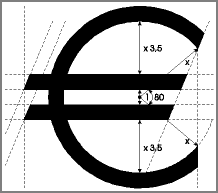Edmund Husserl and Eugen Fink: "The right stuff"
"The greatest phenomenon in phenomenology is Fink." (E. Husserl)
I THINK I (BMcC[18-11-46-503]) have finally found an example of my ideal teacher student relationship. I've had a very little bit of something somewhat close to it a couple times, but this one seems to me to come close to my, not necessarily any other person's "measure of all things" (ref.: Protagoras).
During the 1930's, Eugen Fink was Edmund Husserl's assistant. Martin Heidegger, Husserl's formal prize student had disowned the man who made him, and thrown him to the wolves. Husserl was stripped of his academic position because he was a jew in the newly Nazified nation. Fink was Aryan and so could have dumped his teacher and made out well, but he stood by him and suffered in his career, although fortunately, he did not pay an ultimate price for it in the end. Apparently Fink was a brilliant student, acing exams without ever taking notes. Husserl came to put his trust in him, to the extent that when Fink got one last publication through the academic establishment, which expressed Fink's own understanding an elaboration of his teacher's work, and did not just toadie-echo his teacher, Husserl wrote in the Introduction:
"I have carefully read through this essay at the request of the able editors... and I am happy to be able to state that it contains no sentence which I could not completely accept as my own or openly acknowledge as my own conviction."
Tjhat, for me, is "the gold standard": The undisupted master giving his final blessing to his spiritual son. It's better than the statue of Generals Stonewall Jackson and Robert E. Lee which I used to look at when I worked (1970) at The Baltimore Museum of Art and envied Jackson that he could say of his manager, which I could not in any way say of mine at the time (quoting from memory):
"So great is my confidence in General Lee that I would follow him blindfolded to the pole."
Why better? Because I have read that Lee apparently screwed up at Gettysburg and so was not deserving of unconditional loyalty. But then mobody should be followed blindly , and Fink did not follow his teacher blindly but rather honored him by thinking beyond what he had done.
I personally may have had a very small (and perhaps undeserved) taste of that ideal relationship with a computer programming manager I had who trusted me to the point that when one day I told him I needed upper management approval for something, he went to his superiors and got it without asking me any questions about it. I think he did ask me: "Are you sure?" and when I answered I was, he stepped and fetched it. Also, Professor McClintock letting me do my dissertation all by myself without being monitored or otherwise intruded upon was a great privilege, but I am not assuming the mantle he wears like Fink did with Husserl. Actuality proves possibility and here is an example for very teacher and every student to judge themselves and their life situations. How do you shape up? How does your life situation shape up for you?
I finally finished the book, 17 years after I bought it and back then (2004) I apparently had read over half of it but maybe undertood none of it and forgot everything I did understand of it due to my catastrophic mind-destroying, memory-erasing job from which I was released 15 June 2018 by being made redundant (not fired for cause).
Like the snail in the haiku, I climbed Mount Fuji slowly. I cheated along the way, catching an occasional ride (skimming over some material I could not figure out for myself, for I hhad nobody to help me understand all this very difficult stuff, thank you my inadequate social surround!). So what wa my ultimate goal? To underatnd the phanomanological tke on intersubjectivity. To put it bluntly: What to do about the assholes who lust to get me ot sacrifice my living experiencing in exchange for the metaphysical hypothesis of other people who would live on after me. I don't have my complete answer but I have progressed to the point of having an idea that none of the creeps who would treat me like a stock certificate to be cashed in when its selling price has gone above its purchase price, would like: Empirically I am not sure what "other people", e.g., you, my putative reader, are or are not. Empirical solipsism just might be the way it is, so who trade self-conscious experience of the wohle world for not being aware I even made any trade (being dead if ther is no personal afterlife, which is yet anojther metaphysical specuation...P. But Don't fear I'm shortchanging you: I am not sure what the empirical status of the empirical "me" is either: It might be an empirical situation in which neither other people nor myself exists.
But transcendentally, we all exist through reflection and empathy. I do not constellate "myself" as just another noematic object like a cinderblock or my perp school's head master☏. But neither do I do that with you, unless I am a boss/teacher/parent/et al. and you are an employee/student/dependent child/etc. So long as I interact with you as an interlocutor in peer-to-peer discourse and not as a physical (OK, psychophysical) object to jerk around, you exist transcendentally as much as me [at least until I might become so psychotic that I did not think I existed, either....]. So, whether or not you empirically exist, enjoy, i.e., join in, "the conversation we are" (John Wild, Hans-Georg Gadamer, et al.).
Example why the company of good friends is "necessary for safe and pleasant travel on the road of wisdom and in the pursuit after knowledge...."
The rediculous before the sublime: I bought the "companion" book to the Heidegger/Fink Heraclitus Seminar book to get some second-hand companionship [the printed word...] on the road.... Even though my intellectual life is largely bounded by a ca. 9 by 11 foot room which I share with 2 very large house cats and the washing machine and dryer, I cannot find the Heraclitus Seminar book anywhere, despite looking for it diligently. I was reading the book a month or two ago but now is is as if it has gone to Heaven, along with lost tampons (see here). I have given up on that and ordered another copy of the book (see here). This item is pending.
Here is where the rubber has hit the road: In the companion book, which I had expected would be a cakewalk after having more or less successfully climbed Mount Olympus (see here), i.e.: having finished the Bruzina Husserl and Fink book ~ Well, the companion book is turning out to be quite difficult, in its turn. One two page essay, the first essay in the book, I seemed to imagine the author must be some extremely self-important professor of pompous German university obscurity. I skip the next contribution since I'm not interested in Hegel at this time. So I arrive into the 3rd essay and what do I find? P. 51: The author of this essay is writing that what is most important to think is what is unthought in thinking which has not been addressed in Western philosophy since the ancient Greeks and cannot be thought anyway. OK. Now, for the problem: This author, as I am reading his printed words, is claiming that Heidegger was addressing this problem in the seminar, while Fink was talking about something derivitive. Heidegger, the master and Fink the student, more or less. But the whole 600 page Bruzina book struck me as one long adventure into Fink's attempt to engage with what cannot be thought, which Bruzina wrote Fink called "the meontic".
What's going on here? Professor Bruzina is dead, and it is not clear if he would talk with me if was still alive (I do have one communication from him about John Wild from back in 2004 when his book first came out). The University of Kentucky where he taught did not seem interested in talking with me when I emailed them a year or so ago. So! Did Fink in his post-Husserl years move away from "the meontic" to something more metaphysical or just different? He did not seem to mention "the meontic" in the seminar (moving from 1938 to 1966)? Is thispresent learned professor writing his erudite essay in the companion volume "all wet"? What's going on here? I'm thinking(sic) that Heidegger, with his seeming obsession with "Being" which seems to me to be something constituted (ref.: Husserl) and thus not "to the root" was "missing something", and here Fink, Husserl's philosophical heir, is being made to look like a child who "doesn't get it" and needs to be brought back in line by the Teacher....
Is what I am writing here make sense?[1] I more or less generally feel that I speak and am not heard. But I can accept this as sociological data from the normal people in my social surround who are more interested in HBO HGTV than in where Vladimir Putin came from (next topic, below...). But I can't do much with tenured professors whose day job is how I have chosen to use my "free time" after my indentured servitude as a computer programmer wage-slave (what would they think about this, I wonder?). I can speculate about Husserl and Fink and now Prof. Kenneth Maly, but the printed pages only hear and reply in my fantasy. I really do need the company of good friends "for safe and pleasant travel on the road of wisdom and in the pursuit after knowledge". But, as my sometime IBM manager, Jay Unger, said: "If wishes were horses then beggars would ride."
What is to be done? I will do my best. I may find somebody to futilely email, or maybe not. I will make the best assessment of the situation I can, trying to reassure myself that I have already long since reached the end of the journey since, as I understand it, metaphysics is overcome in the phenolenological thought that "we are a conversation" (Hans-Georg Gadamer and John Wild, et al.; "the essence of philosophy is dialog", "The Promise of Phenomenology", p. ix). I am trying to cite everything like a good little boy, yes? I will continue trying to climb, and falling and failing.... Thanks.
I wonder if Bruzina cooked up his Eugen Fink. Dunno. Of course it does not matter, in my opinion, since I have long since come to the opinion that when its not a matter of putting bread on the table or being cured of dis[-]ease, reality is only raw material for imaginative elaboration and therefore of no more or different value than fantasy ("everything is grist for the mill"). The main takeaway I got from Husserl and Fink was that empathy is transendental intersubjectivity, so that "other people" are neither more nor less ontically ( / metaphysically) real than "oneself". That both oneself and others are structures constituted in experience. Where does this thinking lead? It leads to such pragmatically consequential issues as a person being asked to sacrifice their life for others, in other words: trading self-verifying transcendental intersubjectivity for a metaphysical hypothesis, which is what governments sending men to die in war and just about everthing else is. Not a trivial question, right, my reader and fellow potential conscript?
Meanwhile, back at the ranch, as that saying goes, I have been listening to quite "revealing" lectures on Youtube by Vladimir Pozner (Russian television journalist) and John Mearsheimer, a University of Chicago "Distinguished Service Professor", about American foreign policy in the post Cold War era. These videos have made me feel I have been had (another saying) by The New York Times and CNN. Yes, Vladimir Putin began life as a juvenile delinquent, but up until 2007 he was trying to play nice with The West and "we" essentially told him to get lost because Russia didn't matter any longer. That did not work, of course. Will young Americans today be sent to a new equivalent to the fields of Flanders (1914), in Ukraine? My guess is that while people's memories are short, after Vietnam, young persons will at least be a bit more cynical about dying to prevent Mr. Putin from trashing Ukraine because "we" are determined to get that country into NATO and tough shit, Mr. Putin, whereas John F. Kennedy was willing to risk World War III to keep Soviet missiles out of Cuba. The earth is flat and it has an edge. If we push Mr. Putin to the brink into the abyss, what will he have to lose if he gives us (which includes me and you, my reader, yes?) the gift of all his thermonuclear bombs on his way over it and down?
I wish to bring this little mesage in a bottle to a close with two thoughts. First, the people in my social surround could not care less about where Vladimir Putin came from, i.e.: the fate of civilization and of their own little bodies and ?souls?. They are watching something important on HBO and why am I always thinking such hifalutin thoughts anyway when I should be normal. The media are the message. But it's not just the SES privileged but I feel benighted people in my own personal social surround (not including they two cats): It's America in general. In Mr. Pozner's lecture, I was reminded that some decades ago people mass protested in the streets against nuclear weapons. Today thay mass protest in the streets about a petty felon having his neck crushed by a rogue cop for trying to pass a counterfeit $20 USD banknote in a bodega (see here). I wish I had "Forsadale" to talk with but he would have to have lived to be a centenarian to be with me today albeit I believe his death was medical malfeasance.... and was he just "putting up with me" in our weekly Sunday morning bitch sessions on the land line phone anyway?
The way is everything, the end is nothing (Willa Cather, ref. lost); everything comes to nothing in the end, so enjoy the day while you have one, thus, to paraphrase him, sayeth the Preaher (Ecclesiates, passim). Am I the only one falling? Or are others falling down other silos? bmcc.edd@gmail.com
"Nobody can see another in the darkness." (Hermann Broch, ref. lost)
What is Metaphysics?
I call "metaphysics" any ideation that cooks up a use of living experience instead of deriving something from it. This has massive practical implications: Military conscription of young males to go die for their country is a huge collection of metaphysical notions. Countries are ideas that persons cook up. Soldiers are ideas that persons cook up. The soldiers have "consciousnesses" (inner life, experiencing...) which makes them able to manage the deployment of weapons. Countries use "consciousnesses" (inner life; experiencing...) for labor power, copulation, childrearing and other activities which are required for the continued real world instantiation (referent...) of the idea of a country. Not metaphysical is "bracketing" of belief in such ideas and studying them and what living experience of persons do with them. I just now corrected a typo in the title of this section which sums it all up: Metaphysics is meatphysics: the interpretation of human beings as meat: human resources, material useful for ojectified purposes as if the world was a big board game and persons were tokens that get moved around, which, of course, is the way perosns not only can be but often are interpreted, with great "success".
Metaphysics is meatphysics. Are you a piece of meat? Do you intend to make me be a piece of meat? My parents and "perp" school teachers did exactly that, and I did not like it one bit; I experienced hurt but could do nothing to put an end to being hurt (being hurt is experience not metaphysics). Meatphysics: "Ask not what your country can do for you; ask what you can do for your country." How many foot-pounds of torque or Ampere hours of electric current can I be converted into? Of course they did not put it that way. They weasled and said I earned a certain grade on a test they subjected me to and I would be refueled and redeploiyed accordingly, like a combat vehicle. More meatphysics, i.e., metaphysics. Lemma: A metaphysician is a butcher. Klaus Barbie was the metaphysician of Lyon. Q.E.D.
Footnotes
- ↑ "Is" as opposed to "Does" here was initially a typo, but I (BMcC[18-11-46-503]) am keeping it intentionally per my thoughts about typographical errors often "saying something" → in the present instance, perhaps, "jost(sic) checking", to see if the reader is reading what I wrote?
 Welcome
Welcome



